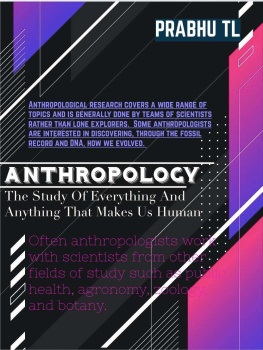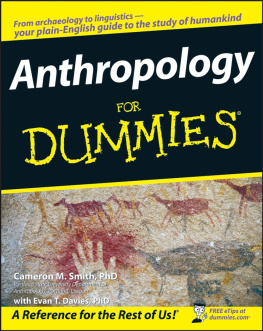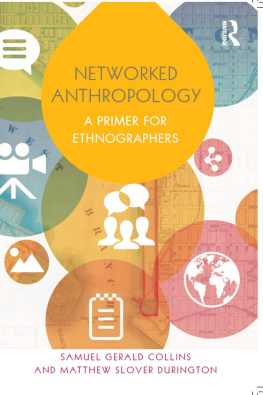
WORLD WATCHING
This book reflects on the authors distinguished scholarly career over half a century, linking personal biography to changes in the discipline of anthropology. Ulf Hannerz presents a number of important essays and a brand new chapter that allows readers to track developments in his own thinking and interests as well as broader changes in the field. In doing so he provides students with valuable insight into the research process and the building of an anthropological career. Featuring work conducted in the United States, Africa, Sweden, Hong Kong, and the Cayman Islands, the book spans a period in which anthropology adapted to new global circumstances and challenges. Hannerz covers the emergence of the fields of urban anthropology, transnational anthropology, and media anthropology in which he has played a significant role. The chapters demonstrate interdisciplinary openings toward other fields and bear witness to anthropologys connections to world history and to public debates.
Ulf Hannerz is Emeritus Professor of Social Anthropology at Stockholm University, Sweden.
Ulf Hannerz has long been one of anthropologys most subtle, prescient thinkers. A scholar unusually at home in the world, his work is testimony to the creative interplay of different cultures, methods, theoretical traditions. These essays, spanning almost fifty years, offer us a brilliant mini-history of the unfolding of the late modern anthropological imagination.
Jean Comaroff, Harvard University, USA
This is a superb introduction to the oeuvre of one of the worlds leading anthropologists. In more than fifty years of fieldwork in a host of locations all over the world, Hannerz has tackled complex social problems with sly humor and an inimitably wry voice. In these pages, anthropology emerges as a cosmopolitan discipline studying other cosmopolitans.
Akhil Gupta, University of California, Los Angeles, USA
For over fifty years Ulf Hannerz has been pioneering anthropological research and challenging disciplinary boundaries. Part-autobiographical, part-critical commentary, these writings chart his personal journey through a changing world, from postcolonial Nigeria, the Caribbean and ghetto culture in Washington to the lifeworlds of foreign correspondents and Swedish detective writers. Readers will relish the wit, insight and originality of these essays.
Cris Shore, The University of Auckland, New Zealand
First published 2019
by Routledge
2 Park Square, Milton Park, Abingdon, Oxon OX14 4RN
and by Routledge
52 Vanderbilt Avenue, New York, NY 10017
Routledge is an imprint of the Taylor & Francis Group, an informa business
2019 Ulf Hannerz
The right of Ulf Hannerz to be identified as author of this work has been asserted by him in accordance with sections 77 and 78 of the Copyright, Designs and Patents Act 1988.
All rights reserved. No part of this book may be reprinted or reproduced or utilised in any form or by any electronic, mechanical, or other means, now known or hereafter invented, including photocopying and recording, or in any information storage or retrieval system, without permission in writing from the publishers.
Trademark notice: Product or corporate names may be trademarks or registered trademarks, and are used only for identification and explanation without intent to infringe.
British Library Cataloguing-in-Publication Data
A catalogue record for this book is available from the British Library
Library of Congress Cataloging-in-Publication Data
A catalog record has been requested for this book
ISBN: 978-1-138-31512-9 (hbk)
ISBN: 978-1-138-31513-6 (pbk)
ISBN: 978-0-429-45653-4 (ebk)
, The Notion of Ghetto Culture, first appeared in Black America, edited by John F. Szwed, copyright 1970. Reprinted by permission of Basic Books, an imprint of Hachette Book Group, Inc.
, Washington and Kafanchan: A View of Urban Anthropology, first appeared in LHomme, 22(4): 2536, 1982. Reprinted by permission of LHomme, Ecole des Hautes Etudes en Sciences Sociales (EHESS), Paris.
, The Management of Danger, first appeared in Ethnos 46: 1946, 1981. Reprinted by permission of Taylor & Francis.
, Marginal Entrepreneurship and Economic Change in the Cayman Islands, first appeared in Ethnos, 38: 101112. Reprinted by permission of Taylor & Francis.
, Tools of Identity and Imagination, first appeared in Identity: Personal and Socio-Cultural, edited by Anita Jacobson-Widding. Acta Universitatis Upsaliensis, Uppsala Studies in Cultural Anthropology, 5, 1983. Reprinted by permission of University of Uppsala.
, The World in Creolization, first appeared in Africa, 57: 546559. Reprinted by permission of Cambridge University Press.
, Flows, Boundaries and Hybrids: Keywords in Transnational Anthropology, first appeared (in Portuguese) as Fluxos, fronteiras, hbridos: palavras-chave da antropologia transnacional, in Mana (Rio de Janeiro), 3(1): 739. Reprinted by permission of Mana.
, Other Transnationals: Perspectives Gained from Studying Sideways, first appeared in Paideuma, 44: 109123. Reprinted by permission of Frobenius-Institut, Goethe-Universitt Frankfurt am Main.
, Being There and There and There! Reflections on Multi-site Ethnography, first appeared in Ethnography, 4: 229244. Reprinted by permission of Sage Publishing.
, Foreign Correspondents and the Varieties of Cosmopolitanism, first appeared in Journal of Ethnic and Migration Studies, 33: 299311. Reprinted by permission of Taylor & Francis.
, Touring Soweto: Culture and Memory in Urban South Africa, first appeared in City and Culture: Cultural Processes and Urban Sustainability, edited by Louise Nystrm, 1999. Reprinted by permission of Boverket, Karlskrona.
, Reflections on Varieties of Culturespeak, first appeared in European Journal of Cultural Studies, 2: 393407, 1999. Reprinted by permission of Sage Publishing.
, A Detective Story Writer: Exploring Stockholm as It Once Was, first appeared in City & Society 25: 260270, 2013. Reprinted by permission of John Wiley & Sons.
The title of this book, World Watching, deserves some comment. For one thing, ever since in my childhood I acquired the habit of reading newspapers. I have always been inclined to do that somehow taking a special interest in foreign news. Probably it appealed to my imagination. At the time the Korean War was going on, so I also looked at the map to find those remote places: Seoul, Pyongyang, Pusan Later I tried to use whatever opportunities came my way to catch at least glimpses of as many parts of the world as possible. But apart from that, world watching is one way of describing the anthropological vocation, in its shifts between close-ups and globalizing overviews.
More specifically, however, I have in mind world watching as a particular kind of challenge to anthropology. Now and then, I return to the writings of Alfred Kroeber, one of the disciplines ancestral figures (sometimes for inspiration, at other times for irritation or distraction). In early 1946, Kroeber traveled to Britain on board the Queen Mary








